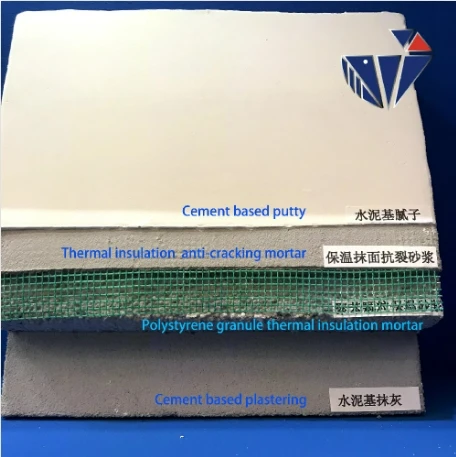
Dec . 11, 2024 08:00 Back to list
hydroxyethylcellulose based
Hydroxyethylcellulose-Based Products Versatility and Applications
Hydroxyethylcellulose (HEC) is a water-soluble polymer derived from cellulose, which is a natural polymer obtained from plant cell walls. As a modified cellulose, HEC exhibits unique properties that make it a valuable ingredient in a variety of industries, including pharmaceuticals, personal care, food, and construction. This article will highlight the versatility of hydroxyethylcellulose-based products, their key applications, and their benefits.
Chemical Structure and Properties
The chemical structure of hydroxyethylcellulose is characterized by the introduction of hydroxyethyl groups to the cellulose backbone. This modification enhances its solubility in water and gives it the ability to form viscous solutions. HEC is non-ionic, which means it does not carry an electrical charge, making it compatible with a wide range of other ingredients. Its ability to thicken, stabilize, and emulsify solutions is attributed to its unique molecular structure.
Applications in Pharmaceuticals
One of the primary applications of hydroxyethylcellulose is in the pharmaceutical industry. HEC is often used as a thickening agent in various formulations, including gels, creams, and ointments. Its ability to enhance the viscosity of these products ensures that active pharmaceutical ingredients are evenly distributed and remain stable. Furthermore, HEC is utilized in the preparation of controlled-release drug formulations. By altering the viscosity, HEC can help regulate the release of medication, providing a sustained therapeutic effect.
Role in Personal Care Products
In the realm of personal care and cosmetics, hydroxyethylcellulose has gained popularity due to its multifunctional properties. It is widely found in hair care products, skin creams, lotions, and makeup. As a thickener, it helps achieve the desired consistency and texture, while also improving the product's stability. Additionally, HEC acts as a film-forming agent, enhancing the adherence of products to the skin or hair, allowing for prolonged effects. Its gentle nature makes it suitable for sensitive skin formulations, thereby expanding its use in natural and organic cosmetic lines.
hydroxyethylcellulose based

Application in Food Industry
HEC also finds application in the food industry where it serves as a thickening and stabilizing agent. It helps improve the texture of sauces, dressings, and dairy products by preventing separation and ensuring consistency. Moreover, HEC can enhance the mouthfeel of products, creating a creamy texture that is often desired in food formulations. Its approval by regulatory bodies, such as the FDA, ensures its safety and suitability for human consumption, making it a preferred choice for food manufacturers.
Construction and Building Materials
In construction, hydroxyethylcellulose is used as an additive in cement, plaster, and tile adhesives. Its thickening properties improve workability, making applications smoother and more manageable. HEC also enhances the performance of these materials by increasing water retention, which is critical for achieving optimal adhesion and curing properties. The use of HEC in building materials contributes to the durability and longevity of construction projects, reflecting its importance in the industry.
Environmental Impact and Sustainability
As the world moves toward more sustainable practices, hydroxyethylcellulose stands out as a biodegradable and environmentally friendly option. Being derived from natural cellulose, it aligns with the increasing demand for sustainable ingredients across various sectors. Furthermore, its non-toxic nature ensures that products containing HEC pose minimal risk to human health and the environment.
Conclusion
Hydroxyethylcellulose-based products have carved a niche for themselves in multiple industries due to their versatility and multifunctional properties. From pharmaceuticals and personal care to food and construction, HEC showcases its broad application potential. Its ability to enhance viscosity, stability, and performance makes it a valuable ingredient in formulating effective products. As industries continue to seek sustainable and efficient solutions, hydroxyethylcellulose will likely play an increasingly significant role in the development of innovative products that meet consumer demands.
-
Versatile Hpmc Uses in Different Industries
NewsJun.19,2025
-
Redispersible Powder's Role in Enhancing Durability of Construction Products
NewsJun.19,2025
-
Hydroxyethyl Cellulose Applications Driving Green Industrial Processes
NewsJun.19,2025
-
Exploring Different Redispersible Polymer Powder
NewsJun.19,2025
-
Choosing the Right Mortar Bonding Agent
NewsJun.19,2025
-
Applications and Significance of China Hpmc in Modern Industries
NewsJun.19,2025







